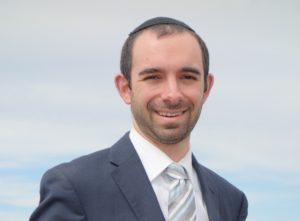
By Zev Eleff
Last weekend, I had a troubling encounter with American sport, apart from the Phillies’ unfortunate defeat in the World Series.
On Sunday morning, Hall of Fame football player Ed Reed tweeted his support of embattled basketball star Kyrie Irving: “These boys making business decisions, not worried about the people! I STAND WITH #KyrieIrving we are Harmed everyday! Stop acting as if BLACK folk are not treated worse than any. All the attn (apologies) PROVES it #CarryOn.”
Irving was suspended last week for posting a link to an antisemitic movie, “Hebrews to Negroes: Wake Up Black America.” The propagandist film is chock full of anti-Jewish tropes and, among its most egregious claims, denies the historical Holocaust. Owing to the other recent firestorm over Kanye West’s antisemitic banter, the news of Irving’s misdeeds has received ample media attention.
Why did Reed’s Twitter post catch my attention? Reed played defense for the Baltimore Ravens, my favorite football team. During his All-Pro career, I spent many hours cheering Reed in front of my television screen, and on a few occasions in person.
His comments frazzled my fandom and shook my sensibilities. I didn’t have another way to reach Reed, so I tweeted back: “Hate isn’t a scarce resource. It’s not a zero sum game as you make it out to be.” Reed responded less than an hour later: “No hate here playa, just standing with my brother not on hate bc that’s not what he [Irving] is about.”
Reed and I exchanged a few more tweets before I closed my phone in preparation for a Holocaust education event at Gratz College. At the program, fortuitously, Elisha Wiesel shared how his father, the humanitarian Elie Wiesel, had urged Jews and non-Jews to learn “from” and “about” the Holocaust.
During the program intermission, I checked Twitter, curious to learn whether Reed extended our discussion. Reed didn’t. His only Twitter activity in the interim was a post to an antisemitic video clip.
I figured, then, that it would be of no help to share Wiesel’s wisdom on Twitter; to suggest that the study of genocide and hate is an opportunity to learn narrowly “about” those persecuted groups and to draw broader lessons “from” those experiences.
Others, however, weighed in on our exchange.
Some tweets took up my cause, explaining to the retired football legend that the movie Irving had endorsed was unredeemable. Someone of Irving’s public stature should not spread lies and hate.
Other commenters took Reed’s side, suggesting that Irving’s post was benign and, in response to a Jewish college president raising the issue, suggested that the “Jewish Holocaust already dominates the curriculum in our American schools.”
The Twitter encounter challenged my assumptions about Black-Jewish relations. What we require, I had shared at a recent program held by the Anti-Defamation League’s Philadelphia-based Black-Jewish Alliance was increased literacy of the Jewish and African American experiences in the U.S. As an American historian, I stressed that the Black and Jewish communities need to obtain a better handle on the important histories of these two minority groups and how each was, in relative terms, kept on the fringes of American life.
Of course, the extent of antisemitism in the U.S. has never reached the horrors of racism.
Yet, a nuanced view has much to offer about the complexities of “whiteness” in determining access to the American mainstream. There’s also much to say about how Jews and African Americans worked together, and how civil rights issues such as affirmative action compelled them to work apart.
Reed has alerted me that learning “about” hate is insufficient so long as Jews, African Americans or any other group believes that remedying injustice is a zero-sum game; that, somehow, too much of a curricular emphasis about one group will detract from the available time and energy available for the other.
Reaching further back into history, this was Isaac Leeser’s fear in the 1860s. Leeser, one of Philadelphia’s ranking Jewish leaders, worried that abolitionists’ success on behalf of Black slaves might sink Jews to the bottom of the societal totem pole. We need to debunk this longstanding zero-sum assumption and consider how groups can learn “from” one another to cultivate mutual support.
We must teach “about” hate and draw lessons “from” history that support agency and allyship. The classroom discussions examining Elie Wiesel’s or Toni Morrison’s works should elicit provocative and applicable conversations about the people represented in those books and make meaning for the young people grappling with those challenging texts.
Bigots and racists load their weapons of hate speech with limitless ammunition. We, on defense, ought to recognize that our tools to educate and engender understanding need not be so limited like some zero-sum totem pole.
Zev Eleff is president of Gratz College.




University Miami former football player Ed Reed and advisor to their football program is an insult to all who condemn the growing intolerance in America. While we are all entitled to our opinion, we are all entitled to condemn the stupidity and ignorance that Ed Reed expressed. I’m waiting to hear from ..the U..